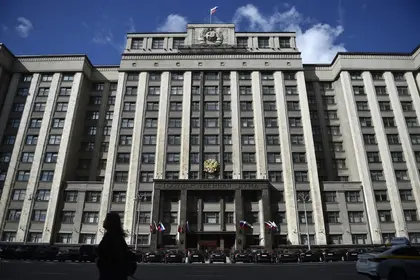Russian State Duma has prepared a bill aimed at prohibiting the adoption of Russian children by foreign citizens of those countries that permit sex change procedures to be carried out, the state news outlet Ria Novosti reported on Monday, Nov. 20.
This follows the adoption of a law by Russia in July that prohibited its own citizens from undergoing sex change surgery or treatment.
JOIN US ON TELEGRAM
Follow our coverage of the war on the @Kyivpost_official.
Speaking at a parliamentary commission meeting focusing on the “criminal actions of the Kyiv regime” against minors, the head of the legislative body’s Committee on Security, Vasily Piskarev, underscored what he saw as the necessity of the proposed legislation.
He said that the primary objective is to “guarantee an adopted child that he will not end up in a same-sex family” and to ensure that the child grows up in what is deemed a “normal family” made up of parents of both sexes.
“In this regard, we have developed a bill that proposes to prohibit the adoption of a child for foreign citizens if a sex change is allowed in their state, both by producing appropriate documents and by using medical and all kinds of forms of intervention,” Piskarev said.
He made the intention even clearer by saying “At the same time, I would like to note that by introducing this ban on the adoption of such children by foreign citizens, in fact, we are introducing a ban on the adoption of children by NATO countries since most of the countries that allow adoption and same-sex marriages are NATO countries.”.

Russia’s Shadow Looms Over Estonian Border Town
This move is in addition to the existing Russian regulatory frameworks, that ban Russians providing surrogacy for foreigners and 2012’s “Dima Yakovlev Law,” which prohibits US citizens from adopting Russian children.
Sex change operations are not only legal in NATO countries but also in Russia-friendly Iran, where such procedures are officially allowed. Piskarev, however, did not address and wasn’t questioned on this aspect in the context of the proposed bill.
You can also highlight the text and press Ctrl + Enter






